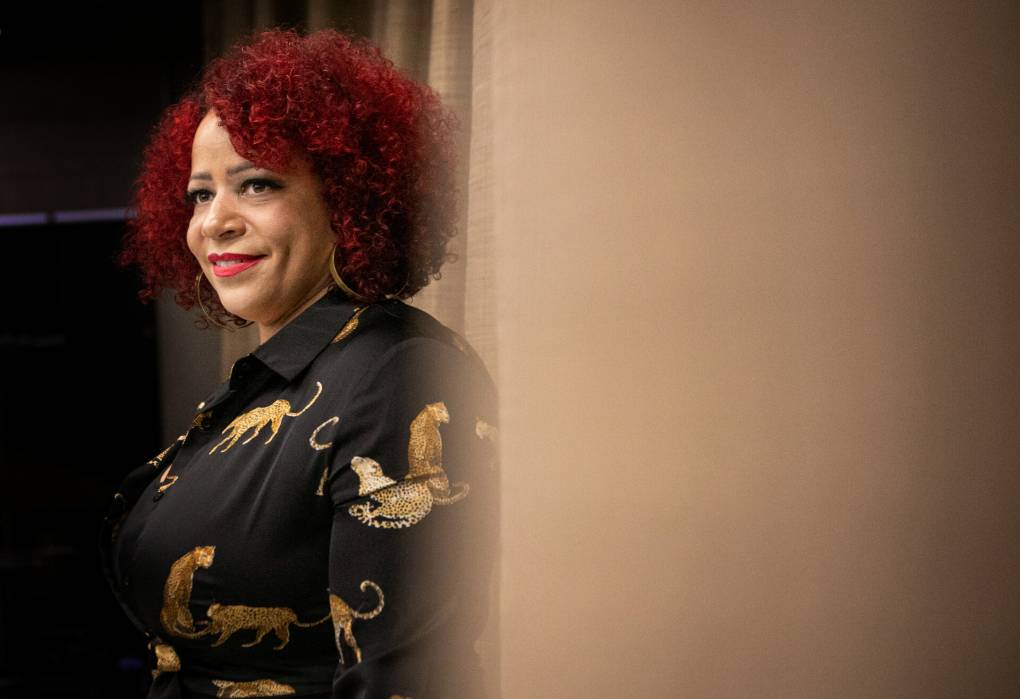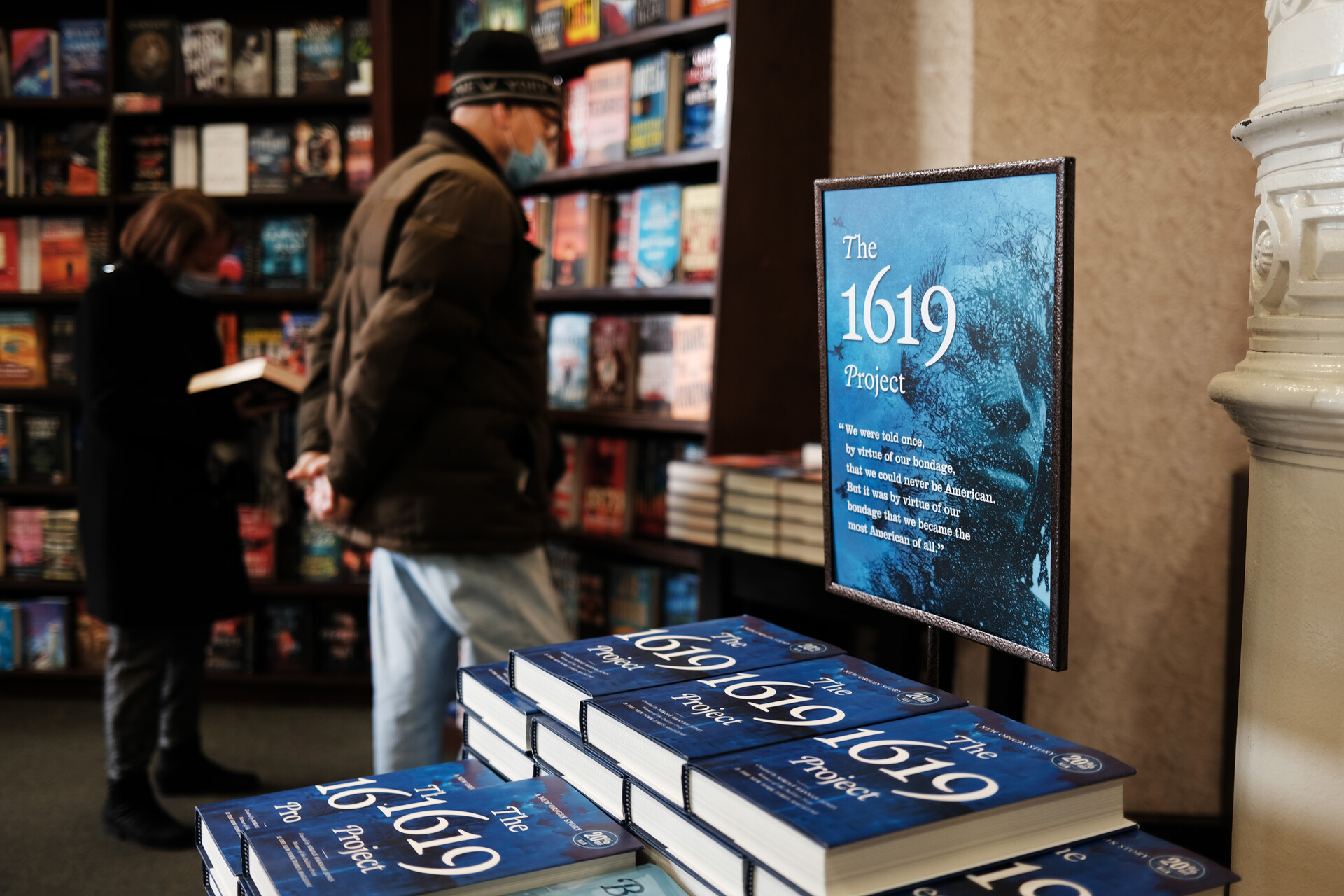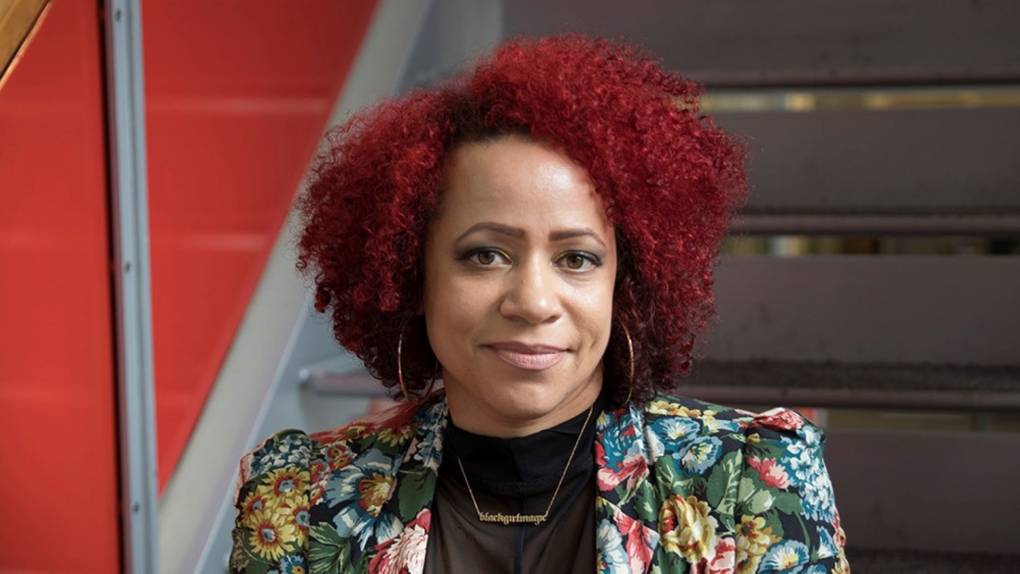In her book, "The 1619 Project: A New Origin Story," creator and Pulitzer Prize-winning journalist Nikole Hannah-Jones asks readers to reconsider the origin story of America: one that did not start with the Declaration of Independence, but earlier, in the year 1619.
That was the year the first enslaved African people arrived at the British colony of Virginia, a part of history that Hannah-Jones learned from a book given to her by a high school teacher — outside of class.
"We’ve been taught a very narrow version of American history," says Hannah-Jones. "It is a version that tries to keep us complacent. That tries to tell Black people that we haven't contributed much to this society, that we haven't resisted, that we don't have a foundational role."
The project, which touches on the history of slavery and its enduring role in American society, began as part of a 2019 New York Times Magazine special edition. The expansion of the project features new essays along with poetry and photography, and also serves as a response to the debates sparked when it was first published.
Hannah-Jones appeared on KQED Forum to discuss co-opted Black history in America, the development of "The 1619 Project," the case for reparations, and the direction of American society moving forward.
This interview has been edited for length and clarity.
On being called a 'discredited activist' when being asked to give a speech commemorating Dr. Martin Luther King, and the manipulation and whitewashing of Black history and civil rights activists
This time of year, people who are actively working against the things that Dr. King most fought for like to use him against those who are still fighting for social justice. Many people who talk about Dr. King — [what he] would have respected, or what he would have wanted, or whose side he would have been on — have never actually read most of what he's written, and have no idea how radical he truly is. I know certainly Dr. King has been used against me, where people have said I have defiled his legacy by the work that I do.
Everyone seems to know about the part [in King’s 1963 "I Have a Dream" speech made at the Lincoln Memorial in Washington, D.C.] about judging. You know, "I hope one day my children will be judged by the content of their character, not by the color of their skin" — but they don't know the rest of that speech, which is actually an indictment of America. He says that the Declaration of Independence was a promissory note, but that the United States had defaulted on that promissory note when it came to Black people, and that Black people had come to Washington to cash a check to demand that their rights be fulfilled.
If we're allowing people to teach us a truncated history, a manipulated history, and not actually doing the research for ourselves, then that is a means of social control.
On the moment she realized history can be managed and manipulated
I was 16 years old. I took a class at my high school. My teacher gave me a book called "Before the Mayflower" and, some 30 pages in, I came across the date 1619 — which marks, of course, the first Africans being sold into slavery and what would become the original 13 colonies. They were sold into Virginia. And this was a full year before the Mayflower.


